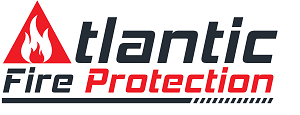One of the worst nightmares of a restaurant owner is a kitchen fire. Though restaurant operators should be taking steps toward fire prevention, even during the construction of their store, no one can prepare 100 percent for anything. There is always a risk of something going wrong. Fortunately, fire suppression systems are a requirement for commercial establishments, and these can help you keep fires under control.
You need to conduct regular fire extinguisher inspections. Make sure the system is functioning normally, or you might find yourself in the worst possible situation where your system doesn’t work at the exact moment you need it to function. Inspections also prevent untimely discharge of your system and ensure that it passes an insurance audit.
Here are things you need to know about fire suppression systems and how to maintain them.
Have professional inspections at least twice a year
Every six months, your kitchen fire suppression system should pass an inspection by an NFPA-certified and trained technician. It helps ensure that your system operates well and allows you to have access to high-quality replacement parts should you need those.
Inspectors test your system in-depth. They include tests on various functionalities like control components, actuators, remote pull stations, and electrical interlocks. Inspectors also look at the condition of the tanks themselves—the state of the appliance, the duct, and the plenum nozzles and the blow-off caps. Aside from these, they check the link line and your detectors and trace the documentation of previous test dates.
Both dry and wet-chemical fire-extinguishing systems need hydrostatic testing every 12 years. These will ensure that they are still useful in putting out fires and will prevent chemical leaks. You should also test dry chemical systems every six years for caking.
Conduct in-house inspections every month
Monthly visual inspections should be part of your routine right after your fire suppression installation. You or your kitchen manager should check the hood or duct for grease or dirt build-up and if the tamper indicator is intact.
The kitchen manager or restaurant owner should also see if you have pointed the nozzles at the right appliance. It helps reduce the time you spend putting out a fire. You can also ensure that the pull station is not blocked and that the personnel can operate the gauges efficiently.
Finally, double-check the dates of the previous inspections and see if the results on procedures done match the current state of your equipment.
Call your fire extinguisher service if the system goes off
A suppression system will not go off without a trigger, so if this happens to yours, you have to call your fire protection company. If the system sustained any damage, you need to have it repaired before refilling cylinders and recharging the system. A restaurant that has malfunctioning suppression equipment might have to halt operations temporarily to comply with fire and building codes, so be sure you address this as soon as possible.
Keep your documents for insurance and compliance purposes
Documentation includes properly marked service tags, repairs made or discrepancies addressed and inspection reports to be sent to your local fire department. You can get these from your technician, or the professional in charge of inspecting your system. After these inspections, do not get rid of these documents. Always have a record of your inspections so that you can show how your business complies with insurance and government requirements.
Conclusion
A restaurant’s top priority is always serving great food. However, you do not want to compromise being able to do this because of a faulty fire prevention system. Avoid hassles from maintenance issues and collaborate with a fire suppression systems inspection company that can address your concerns promptly and efficiently.
Restaurants and small businesses in New Jersey and Eastern PA can call on Atlantic Fire Pro for their suppression system maintenance needs. We provide fire suppression installation, inspection, maintenance, and more. Call us today for more information.
